Recovery after Laparoscopic Cholecystectomy. What to expect?
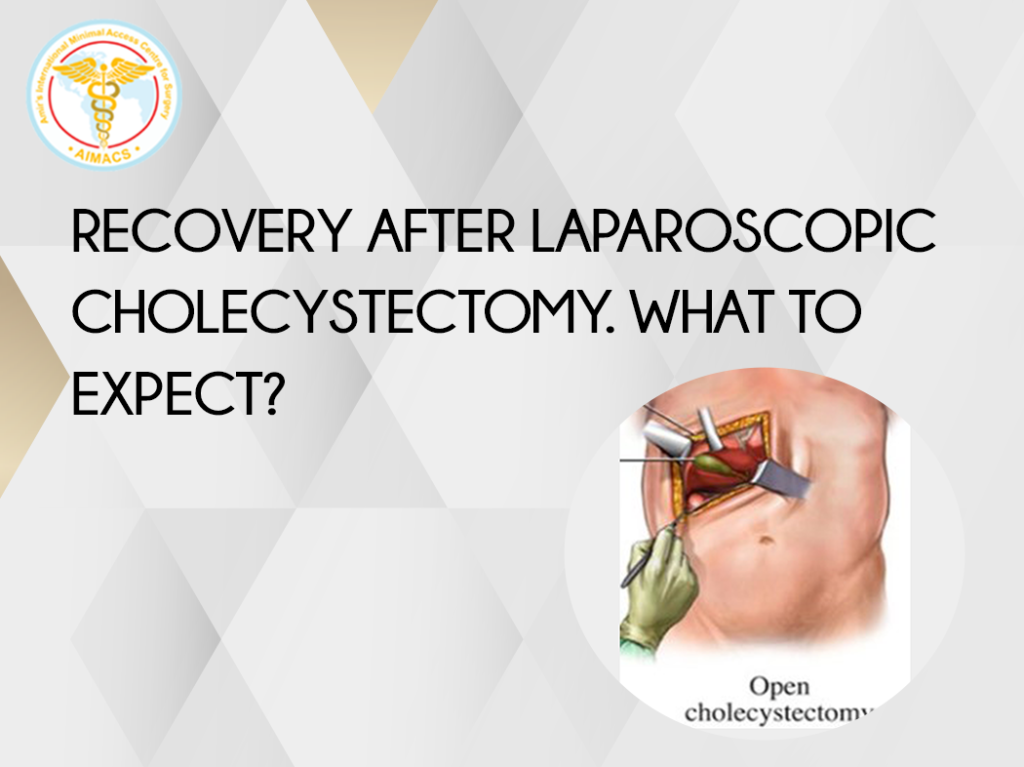
Author has 30 years’ experience of Laparoscopic surgery. He is a teacher and trainer in United Kingdom, Europe, Middle East and Asia in Gall Bladder disease surgery
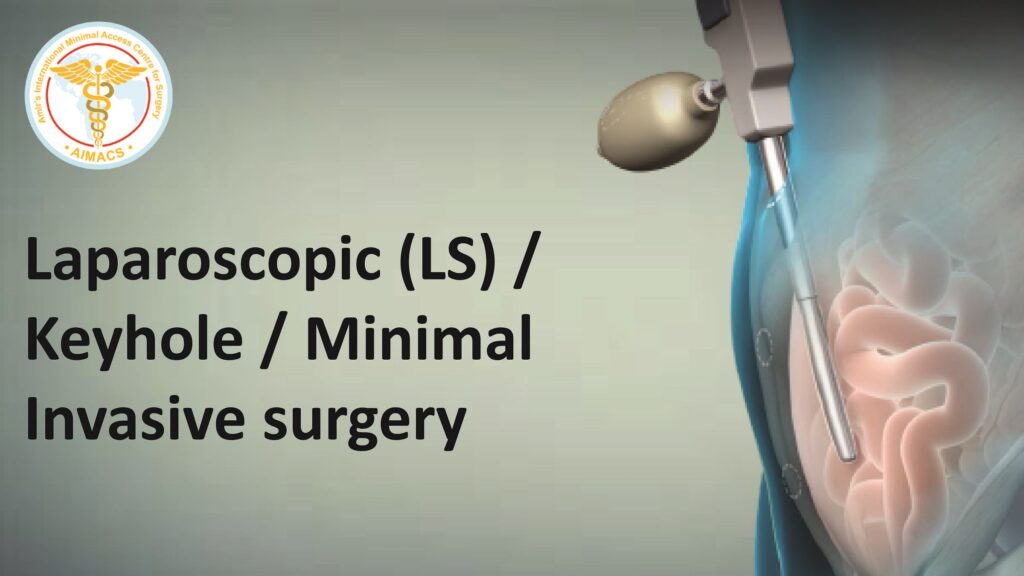
Laparoscopic (LS) / Keyhole / Minimal Invasive surgery
Laparoscopic (LS) / Keyhole / Minimal Invasive surgery allows a patient to have an operation similar to open surgery with much smaller incisions/ cuts on the skin and through the muscles. Recovery is quicker after Laparoscopic surgery than open surgery
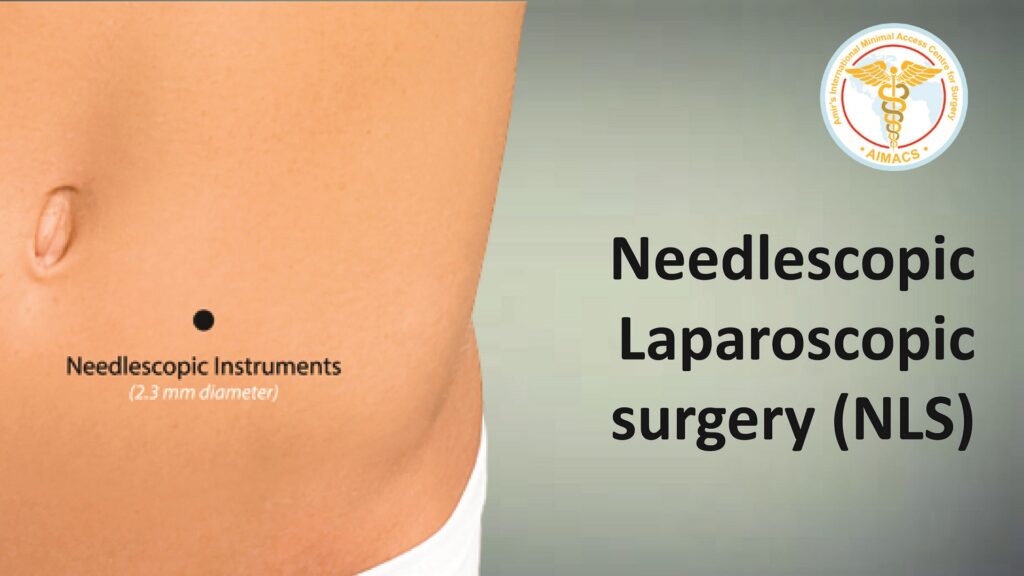
Needlescopic Laparoscopic surgery (NLS)
In Needlescopic Laparoscopic surgery (NLS) the cuts are even smaller than standard Laparoscopic surgery (LS). Needless to mention that recovery and cosmesis are much better after Needlescopic surgery than standard Laparoscopic surgery

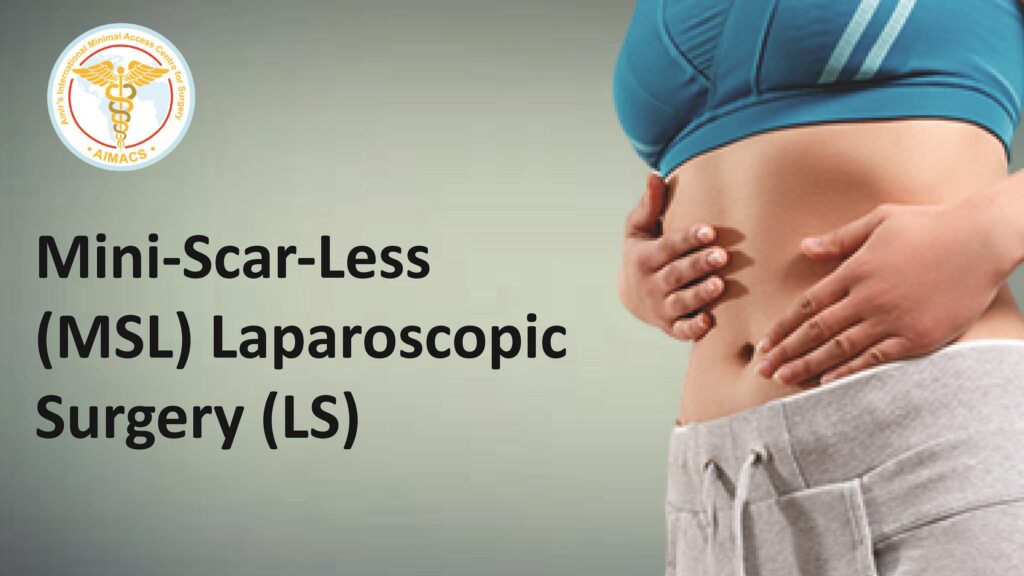
Mini-Scar-Less (MSL) Laparoscopic Surgery (LS)
Mini-Scar-Less (MSL) Laparoscopic Surgery (LS) has set a new standard in terms of cosmesis and recovery, by far margin, better than the Laparoscopic Surgery
In this article we will list a patient’s expected recovery journey in most cases after standard Laparoscopic Cholecystectomy (LS). There may be variations and one will need to be mindful of variations in recovery and should not hesitate consulting the operating surgeon.
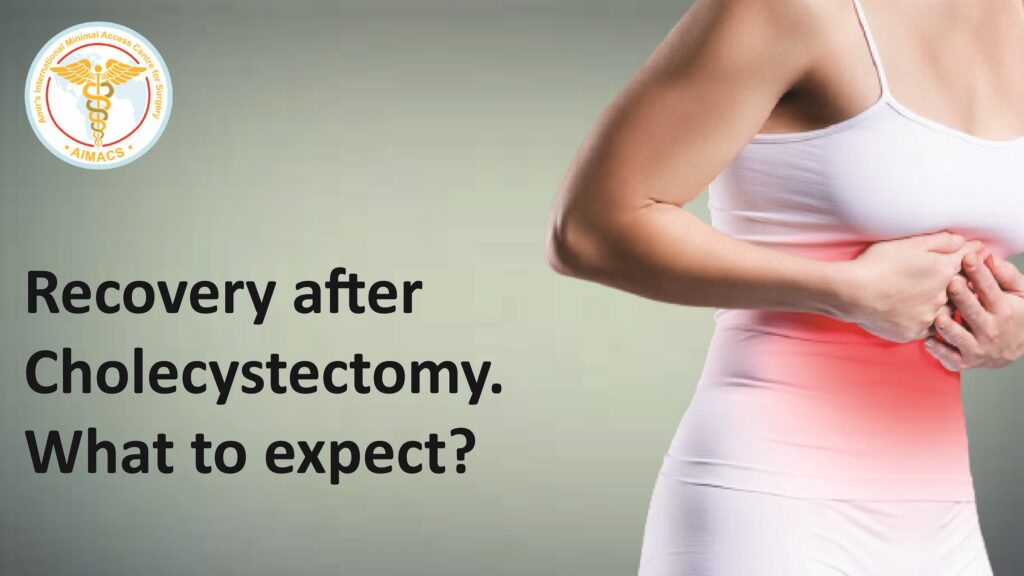
Standard Laparoscopic Cholecystectomy is done with four small incisions in the abdomen under general anaesthetic. This can be done as a day case (a patient going home a few hours after the surgery/ same day discharge) or one-night stay in the hospital.
Surgery typically has an operative time of 15 minutes to half an hour under general anaesthetic. For relatives the overall time seems much longer. Patient’s journey to theatre includes, going down to the receiving are in theatre (5-30 minutes stay), anaesthetic time in theatre (10-30 minutes), Positioning of patient and theatre set up (5-15 minutes in theater), Extubation / bringing the patient out of anaesthesia (5-30 minutes), Observation in recovery area (15-45 minutes).
Overall time spent in theatre complex is 60 – 150 minutes excluding operating time. Once patient returns to the ward, he still remains sleepy / woozy despite being awake and communicable for another hour or two; depending on the type of anaesthesia and pain killers administered during and after surgery.
The other parameters for recovery are as follows:
- To commence drinking and eating
Generally, 1-2 hours after returning to the ward. One is awake and starts with sips building up to free fluids and diet in a few hours.
- Mobilisation
Within an hour or two, building up to walking to wash room with supervision and support within four hours. Walks in corridors can be commenced after 6- 8 hours. Sitting on chair outside bed is preferred and recommended.
- Post-operative pain
In an ideal world the pain should be 0/10. However realistically one can expect pain scores of 0-3/10 after Laparoscopic Cholecystectomy. Pain is generally in the right upper abdomen or the shoulders (especially right shoulder).
One expects to have pain and discomfort for 3-5 days after surgery and requires regular pain killers for this period. After this period, if one gets any further pain then they can continue taking pain killers for longer according to their situation.
Though a person is reasonably comfortable by the end of first week, however, one can expect an odd twinge of pain up to three weeks as one increases the activity while the healing is still going on in the body. - Opening bowels/going to the toilet
Passing water/urine commences within a few hours after surgery. One will pass flatus /wind from the day of surgery or one day afterwards. Bowels will generally open day 2-5 after surgery.
On is likely to get constipated because of eating less during this period and getting constipation causing pain killers after surgery. In cases of known history of constipation or not opening bowels after surgery, taking laxatives is advisable. Any laxatives that a patient is familiar with or the surgeon advising, will suffice.
- Discharge home/ stay in hospital
The same day after the surgery or after one-night stay in the hospital. If there were any complications including conversion to an open operation during surgery or any observation of a problem needing addressing, one may need to stay in longer.
- Dietary restrictions
There are no restrictions. However, one is advised to slowly build up to normal diet with a day or two after surgery. There is certainly no restriction on fat free diet after gall bladder surgery.
- Road travel restrictions
One can travel for reasonable distance by road on the day of surgery or the day afterward. Longer and bumpy journeys can cause discomfort but do not interfere with surgery or its outcome.
- Return to light exercise
From the day after surgery but being sensible and slowing down or stopping if one feels pain or discomfort.
- Return to moderate exercise
From 4-5 days after surgery onwards, once the patient is off the painkillers.
- Return to heavy exercise
From 3 weeks onwards, while listening to the body’s recovery and slowing down if uncomfortable, before it becomes painful. Different people will have different recovery times in accordance with their pain thresholds. Be sensible and do not cause yourself pain and discomfort.
- Return to driving
Generally, when one is pain free and can focus on driving and road safely with a safe margin. Its variable and can be 4- 7 days after surgery with no complications. Insurance companies may not cover if one drives too early after surgery, while having pain.
- Return to swimming
In the sea after 1 week
In the pool after 2 weeks
- Return to air travel
Withing 2-5 days after surgery
- Return to work
“After a day if you are self-employed; after 6 months if you are a civil servant”, is what I told my patients in United Kingdom.
Probably allowing 2 weeks after surgery will suffice in most cases. If in doubt then consult with your doctor.
